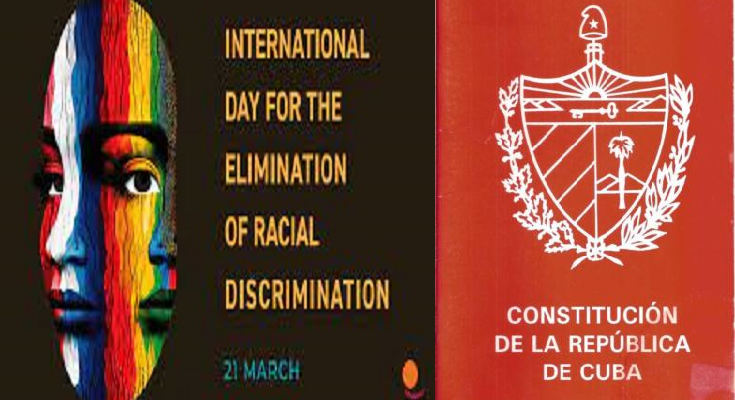Cuba has determined and legislated laws that protect Cuban citizens against discrimination in any of its manifestations that threaten equal rights, with emphasis on the racial aspect.
Throughout the implementation of the revolutionary changes in the island since January 1, 1959, the emancipation of all citizens without distinction of color has been ensured, and efforts have been made to ensure a significant representation of people of any origin in the different levels of leadership of the nation.
To this end, the Magna Carta includes laws that prohibit discrimination based on skin color.
The legal norms that are put into practice in Cuba are useful, effective and efficient tools to confront the problem of racial and other types of discrimination.
CHAPTER VI
EQUALITY
All citizens enjoy equal rights and are subject to equal duties.
Discrimination on the grounds of race, color of skin, sex, national origin, religious beliefs and any other discrimination detrimental to human dignity is prohibited and is punishable by law. The institutions of the State educate everyone, from the earliest age, in the principle of equality of human beings.
CHAPTER VIII
CRIME AGAINST THE RIGHT TO EQUALITY
ARTICLE 295.1. Anyone who discriminates against another person or promotes or incites discrimination, whether with manifestations and an offensive spirit to his sex, race, color or national origin or with actions to hinder or prevent him, for reasons of sex, race, color or national origin, from exercising or enjoying the rights of equality established in the Constitution, shall incur the penalty of deprivation of liberty for six months to two years or a fine of two hundred to five hundred quotas, or both.
ARTICLE 295.2. The same penalty shall be incurred by anyone who disseminates ideas based on racial superiority or hatred or commits acts of violence or incites to commit them against any race or group of persons of another color or ethnic origin.
ARTICLE 2.- The fundamental principles governing labor law are:
(b) equality at work; every citizen in a position to work has the right to obtain employment in accordance with the demands of the economy and his choice, both in the state and non-state sector; without discrimination based on skin color, gender, religious beliefs, sexual orientation, territorial origin, disability and any other distinction detrimental to human dignity.




